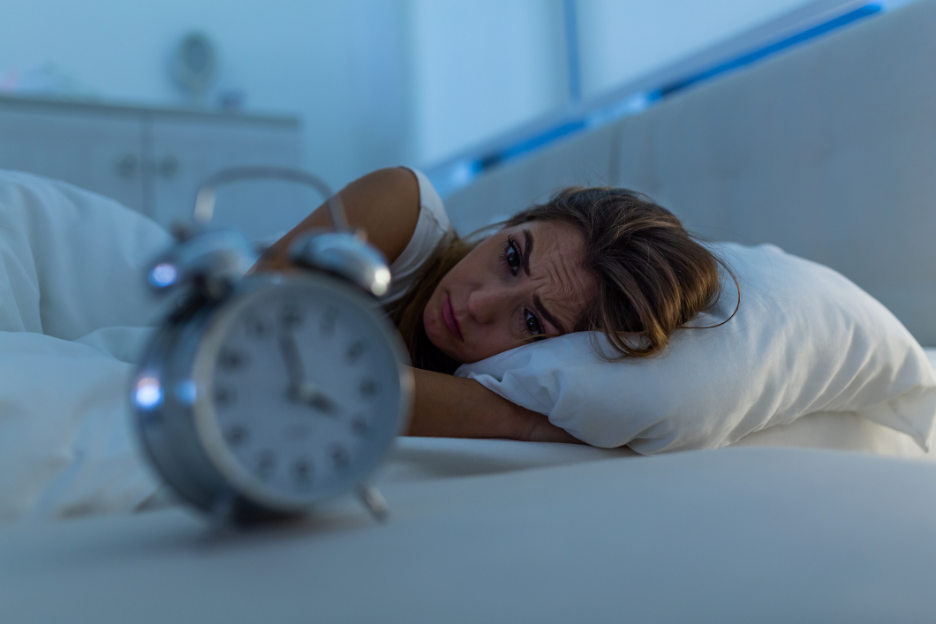Many people already know that bad sleep can ruin their next morning and day. It is why we usually say someone who looks irritable, confused or emotionally off “woke up on the wrong side of the bed.” Below, our behavioral health specialists in East Chicago, Indiana are going to explain the relationship between poor sleep and mental health.
Getting enough sleep is important for your headspace and emotions.
While you sleep, your brain balances “happy hormones” like serotonin and dopamine. These chemicals regulate your mood and make it easier to deal with situations that would otherwise make you stressed. But if your sleep is broken or you are barely getting any, your brain can’t do those jobs properly. And when that happens night after night, you start feeling even more stressed or emotionally drained.
According to the National Alliance on Mental Illness, over half of the people who have sleep problems also deal with anxiety, depression, or high-stress levels. This shows that sleep and mental health don’t only influence each other, but they can feed into each other in a loop. In many cases, getting better sleep is one of the first real steps you can take toward feeling more like yourself again.
What does poor sleep look like when you have anxiety, depression, or PTSD?
When you are dealing with anxiety, your body is always on high alert, and that makes it hard to fall or stay asleep. Studies show that nearly half of people with anxiety also struggle with insomnia. And the less sleep you get, the more your body produces “stress hormones” like cortisol, which can make your anxiety symptoms even more intense and difficult to manage.
Sleep problems can also be a sign of depression. In fact, one study found that people with chronic insomnia are ten times more likely to develop depression. Of those who are already diagnosed with depression, nearly 75% have major sleep problems.
PTSD (Post-Traumatic Stress Disorder) also affects sleep. People who have experienced or witnessed a traumatic event may not be able to fall asleep easily and may wake up many times during the night, sometimes from nightmares.
Our behavioral health specialists in East Chicago, Indiana use targeted therapy that helps people manage both their mental conditions and the sleep problems that come with it.
Sleep impacts your brain’s ability to handle emotions and stress.
When you don’t get enough sleep, it impacts your emotional balance, and you become more sensitive to things or situations that normally would not bother you at all. This is because the prefrontal cortex (the part of your brain that controls your emotional responses) does not work as well when you are low on sleep. Meanwhile, the amygdala (the part of your brain that processes intense emotions like fear and anger) becomes overactive.
Not only that, but poor sleep affects brain chemicals like serotonin and dopamine. And when these “happy hormones” are out of balance, it is harder to feel happy, focus, or even stay motivated.
This is why our behavioral health specialists in East Chicago, Indiana treat sleep problems as an important part of your overall emotional well-being. Once sleep starts improving, people usually notice that their mood and energy have started to heal as well.
How can you improve both your sleep quality and emotional health?
Medication is not always the best answer for sleep problems, especially in the long term. It does work sometimes, but it usually works best when combined with behavioral interventions. One of the best options is Cognitive Behavioral Therapy for Insomnia (or “CBT-I”). This is a short-term, structured therapy that retrains your brain and body to sleep better.
There is also this thing called sleep hygiene, which refers to adopting habits and routines that make you sleep easier. That could mean going to bed and waking up at the same time every day, doing something relaxing before bed (like reading or listening to music), keeping your bedroom cool and dark, and avoiding screens right before you sleep.
Looking for an Affordable Behavioral Health Specialist in East Chicago, Indiana?
Are you ready to improve your sleep and feel better emotionally? If so, and if you’re looking for an affordable behavioral health specialist in East Chicago, Indiana who can help you find lasting balance and support, 219 Health Network is here for you. Contact us today at 833-219-0001 to schedule an appointment.

